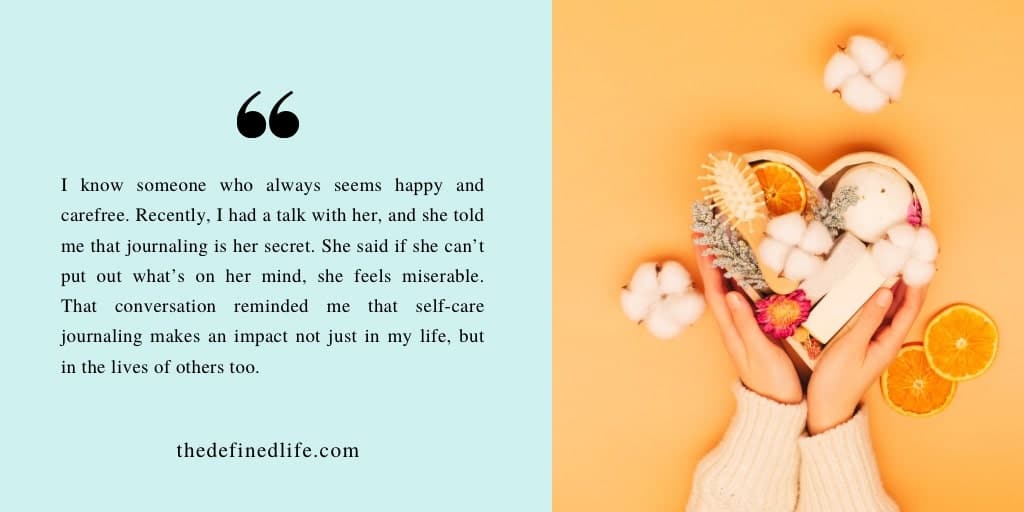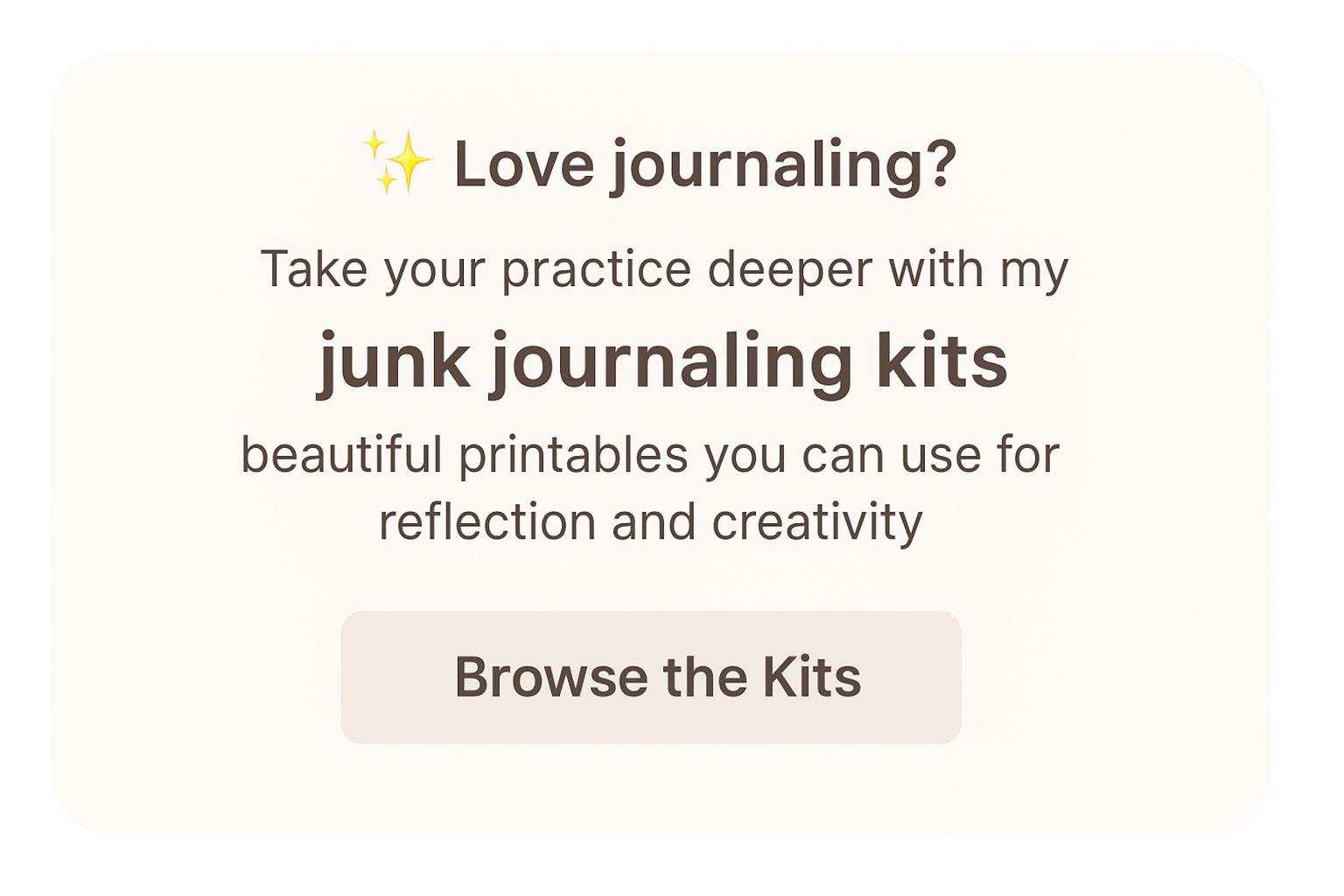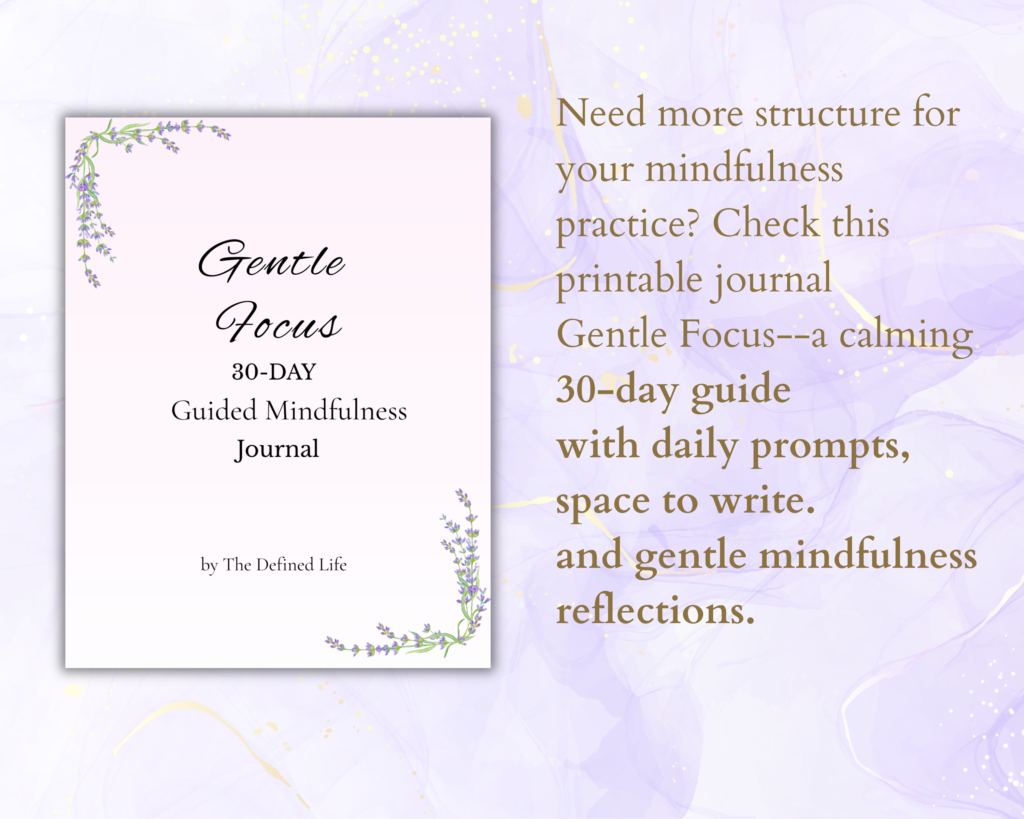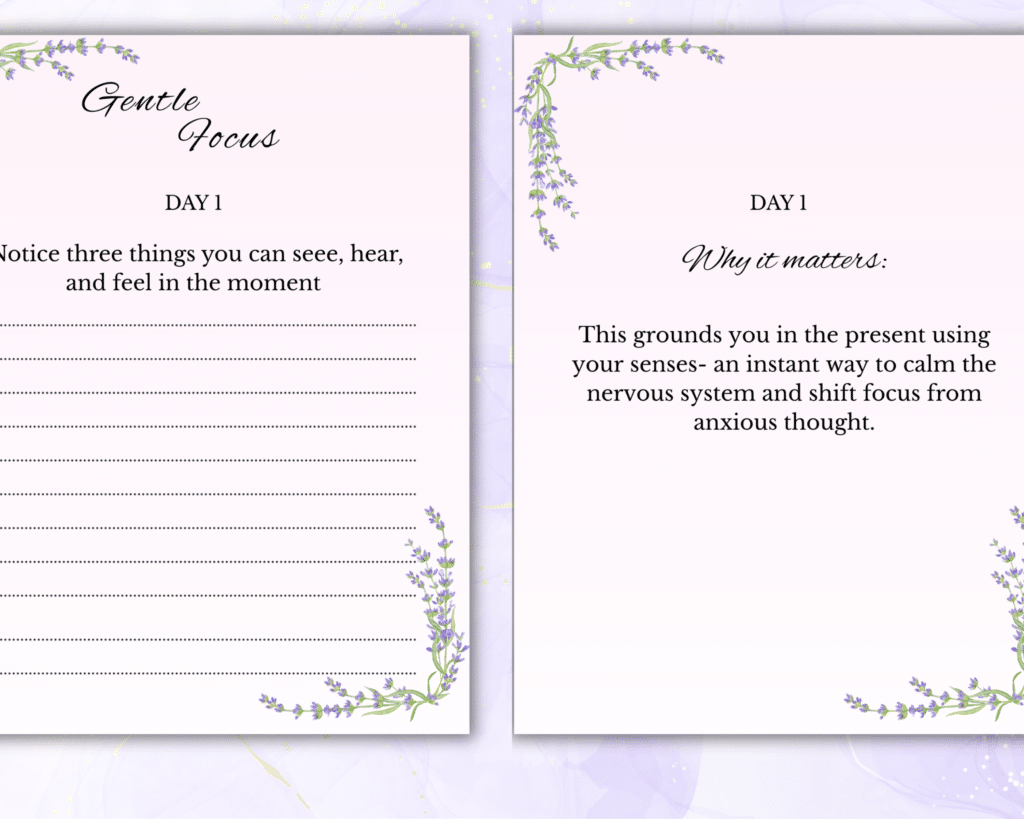
Taking care of yourself goes far beyond bubble baths and skincare routines. Self-care journaling is one of the most practical and sustainable ways to pause, reflect, and reset when life feels overwhelming. Over the years, I’ve turned to journaling not every single day, but often enough to see its impact — it clears my mind, reduces stress, and helps me feel more grounded.
If you’ve been curious about starting a self-care journal but aren’t sure how to begin, using prompts can make the process simple and approachable. Prompts take away the pressure of “what should I write?” and guide you toward what really matters: listening to yourself and honoring your needs.
Below, you’ll find 30 self-care journaling prompts you can use daily, weekly, or anytime you need a gentle check-in with yourself.
Table of Contents
Why Try Self-Care Journaling?
Here’s what makes self-care journaling so powerful (both from research and from my own experience):
Clarity of mind – Sometimes our thoughts feel like a messy knot. Putting them into words untangles that chaos and makes problems feel more manageable. Writing slows you down just enough to sort through what’s important and what can be let go.
Stress relief – Carrying worries around in your head makes them feel heavier. The act of writing—whether in a notebook or on a digital page—lightens that load. Once it’s out of your mind and in front of you, the tension often eases.

Emotional growth – A journal quietly reveals patterns you might not notice in the moment: triggers, habits, even the small victories. Over time, this awareness helps you respond to life with more compassion and less reactivity.
Gratitude – Recording even the tiniest moments of thankfulness—a smile from a stranger, a good cup of coffee—gradually shifts your perspective. What once felt ordinary becomes part of what sustains you.
Consistency over perfection – Journaling isn’t about filling pages with polished essays. Some days it’s just a single sentence, other days it’s a full entry. Both count. What matters is showing up for yourself, not writing perfectly.
I know someone who always seems happy and carefree. Recently, I had a talk with her, and she told me that journaling is her secret. She said if she can’t put out what’s on her mind, she feels miserable. That conversation reminded me that self-care journaling makes an impact not just in my life, but in the lives of others too.


30 Self-Care Journaling Prompts
Use these prompts however you like: pick one each day, choose a handful for your weekly check-in, or keep them nearby for moments when you need a little direction.
- List three things you are grateful for today. – Gratitude shifts your focus from what’s missing to what’s already good in your life.
- Write about one thing that made you smile this week. – Reliving positive moments trains your mind to notice joy in everyday life.
- What is something small you often overlook but truly love? – Appreciating the little things builds presence and mindfulness.
- What are five things in your life you wouldn’t want to live without? – Naming your essentials reminds you of your values and priorities.
- Write a thank-you note to yourself for something you did recently. – Self-appreciation builds confidence and self-respect.
- How am I feeling right now, in one word? – Naming emotions helps you process them instead of carrying them silently.
- What do I need more of in my daily routine? – Identifying gaps encourages healthier habits.
- What’s one thing I can do today to make my life easier? – Small changes add up to less stress and smoother days.
- What drained my energy this week, and how can I return stronger? – Spotting energy leaks helps you protect your well-being.
- How did I take care of myself today? – Acknowledging your efforts reinforces good self-care habits.
- What habits have helped me lately? – Celebrating helpful routines keeps you motivated to continue them.
- What do I want to say no to more often? – Boundaries create space for what truly matters.
- Write about a time you felt proud of yourself. – Revisiting proud moments boosts self-worth and resilience.
- What lessons did last week teach me? – Reflection turns experiences into growth opportunities.
- What’s one change I can make that my future self will thank me for? – Planning ahead nurtures a kinder relationship with yourself.
- Write down everything on your mind without editing. – Brain-dumping clears mental clutter and reduces overwhelm.
- What worries can I let go of today? – Releasing unnecessary stress frees up emotional energy.
- How can I bring more calm into my week? – Consciously planning calm moments reduces anxiety.
- What helps me relax when life feels heavy? – Knowing your go-to comforts builds a personal toolkit for tough times.
- Write about a safe place—real or imagined—that always comforts you. – Imagining safety soothes your nervous system and restores peace.
- What am I looking forward to this month? – Anticipation boosts motivation and positivity.
- What goals excite me right now? – Excitement fuels consistency and keeps progress enjoyable.
- Write about a small win I want to celebrate. – Noticing progress—big or small—keeps you encouraged.
- What kind of person do I want to become? – Clarity about your future self inspires intentional choices.
- What would a truly balanced day look like for me? – Defining balance helps you spot where adjustments are needed.
- Write five kind things about yourself. – Practicing self-kindness rewires negative self-talk.
- What do I love about my current season of life? – Appreciation for the present moment grounds you in gratitude.
- How can I show myself more compassion this week? – Compassion softens self-criticism and creates emotional safety.
- What boundaries make me feel safe and respected? – Strong boundaries protect your time, energy, and peace.
- If I could plan the perfect day of self-care, what would it include? – Dreaming about self-care helps you discover what you truly need.
How to Make Self-Care Journaling a Habit
When I first started self-care journaling, I thought I had to do it “the right way” — a fancy notebook, long entries, perfect handwriting. The truth? None of that matters. What matters is finding a rhythm that works for you and sticking with it in a way that feels supportive, not stressful. Here are a few things that have helped me:
Choose your tool.
Pick something you actually enjoy using — maybe a simple notebook, a dedicated gratitude journal, or even a journaling app on your phone. The “best” tool isn’t the prettiest or most expensive; it’s the one you’ll reach for consistently.
If you need additional help, I created Gentle Focus, a 30-Day Guided Journaling to help you write more intentional (just click the pictures)
Start small.
Five minutes a day is more than enough. Think of it as a pause button rather than a project. A single sentence can still shift your mindset and help you reset.
Set reminders.
Pair journaling with a routine you already have. Mornings with your coffee, or evenings before bed, are great anchor points. A little nudge on your phone can also make it easier to remember until it becomes second nature.
Be flexible.
Some days you’ll fill a page, other days you’ll only write a few words. Both are valuable. Self-care journaling isn’t about perfection — it’s about showing up for yourself in whatever capacity you can.
Return often.
Make your journal a safe place to land whenever you need clarity or comfort. You don’t have to wait for the “right time.” Use it when you’re stressed, when you’re celebrating, or simply when you want to check in with yourself.
Over time, these short entries add up. You’ll start to see a personal record of your growth — a timeline that shows not just your struggles, but also how you’ve cared for yourself through different seasons of life.
Final Thoughts

Self-care journaling is one of those small habits that can make a big difference over time. Using your journal as a self-care practice will create meaningful improvements in your life.
If you want guided support, I’ve created Gentle Focus, a printable 30-day mindfulness journal that gives you space to reflect without overcomplicating things. It’s a helpful next step if you’d like to make journaling a consistent part of your self-care.
At the end of the day, your self-care journal doesn’t need to be perfect—it just needs to be yours.
Love and light,










Leave a Reply